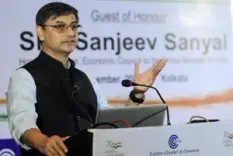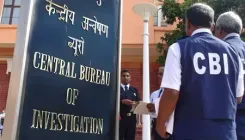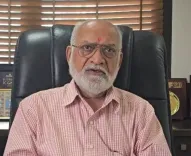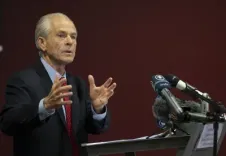Why does the Karnataka government obstruct PM Modi's efforts to ease public burdens?
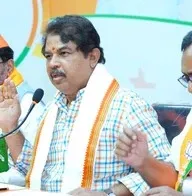
Synopsis
Key Takeaways
- Karnataka government opposes Centre's GST reforms.
- Prime Minister Modi aims to ease financial burdens on citizens.
- CM Siddaramaiah emphasizes the need for fiscal safeguards.
- The conflict highlights issues of state autonomy.
- Concerns over potential revenue losses affecting welfare programs.
Bengaluru, Aug 30 (NationPress) In response to the Karnataka government's objections regarding the Centre's initiative to rationalise GST slabs, the state BJP asserted that when Prime Minister Narendra Modi aims to alleviate the burden on citizens, the Congress-led government obstructs such progress. This statement comes in light of Chief Minister Siddaramaiah's claim that the state supports "rationalisation of GST rates and reducing the burden on the people," while emphasizing that "these reforms should be paired with a solid framework that safeguards the fiscal interests of states" to ensure the delivery of welfare services.
The Leader of the Opposition (LoP) R. Ashoka remarked on Saturday that while PM Modi is working towards simplifying and rationalising GST slabs—an effort to lower the prices of essential goods such as food items, textiles, TVs, refrigerators, health insurance, and cement—the Karnataka government is choosing to obstruct this initiative.
Despite the Congress party in New Delhi attempting to take credit by referencing LoP Rahul Gandhi’s previous tweet, the Karnataka government, led by the same party, is resisting these pro-people reforms, expressing concern over "loss of revenue," Ashoka highlighted.
"This reflects the height of Congress' hypocrisy and double standards, taking credit on one hand while opposing a reform that benefits the people on the other," Ashoka criticized.
Once again, the camp of CM Siddaramaiah has contradicted LoP Gandhi's statements, he mocked.
"For Congress, it’s always about safeguarding their finances to support their elections. For the BJP and Prime Minister Modi, it’s about protecting the financial interests of the people. That exemplifies the disparity between politics driven by self-interest and politics centered on service," he articulated.
The people of Karnataka are eager to remove this "ATM government," which compromises the interests of the residents to cater to their Delhi superiors, Ashoka asserted.
In response to the situation, CM Siddaramaiah stated, "We advocate for the rationalisation of GST rates, easing compliance, and reducing the financial burden on the populace. However, these reforms must be coupled with a strong framework that secures the fiscal interests of the states."
"Without this foundation, states will struggle to maintain welfare and development initiatives, risking a severe compromise of their financial autonomy," CM Siddaramaiah insisted.
"GST represents a shared responsibility. It is based on mutual respect and accountability between the Centre and states. For the sustained viability and stability of GST, there must be collaboration between the Centre and states," CM Siddaramaiah appealed.
This necessitates that states be involved in discussions and their concerns be effectively addressed, he stressed.
"Furthermore, Karnataka has already faced discrimination regarding the allocation of funds from the Union Government, experiencing an annual deficit of nearly Rs 25,000 crore. Any additional reduction in GST revenue will only worsen this injustice and directly impact our ability to fulfill development and welfare commitments," CM Siddaramaiah concluded.

